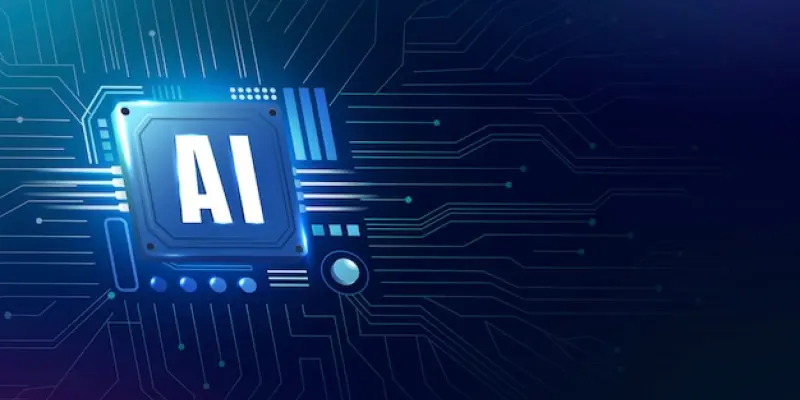In a bold move at TED2025, OpenAI’s CEO Sam Altman unveiled plans for a cutting-edge open-source AI model that could potentially redefine the landscape of artificial intelligence. This announcement marks not only a pivotal moment in the AI industry but also for OpenAI itself, a company that stepped back from open source approaches amid past concerns about misuse. The renewed emphasis on open-source frameworks demonstrates a strategic shift that balances technological progress with a commitment to responsible development, highlighting both opportunities and challenges as AI continues its rapid evolution.
OpenAI’s Strategic Shift Towards Open Source
Embracing Transparency and Collaboration
Altman’s announcement centers on OpenAI’s deliberate choice to return to open-source methodologies, driven by the belief that more open systems are essential for the broader AI ecosystem. OpenAI’s mission has always been to responsibly steward AI technology, ensuring it is implemented safely and ethically. The decision to embrace open source once again reflects confidence in the maturity of understanding the risks associated with AI deployment globally. In this context, the return to open source is a carefully calibrated move, underpinned by the belief that shared innovation can foster both advancement and safety.
Additionally, OpenAI’s re-engagement with open source parallels a growing acknowledgment of the rapidly evolving competitive landscape. Models such as China’s DeepSeek represent significant competition, necessitating a reevaluation of strategy. Altman clarified that OpenAI’s decision is not just reactive to competitive pressures but forms a part of an ongoing strategic evolution. By introducing a model that balances capability with accessibility, OpenAI is positioned to engage broader user bases, stimulating innovation and collective progress in AI.
Managing Risks and Ensuring Responsible Development
Addressing concerns about potential misuse, Altman expressed a firm commitment to navigating the trade-offs between open and closed systems. The shift to open source is informed by a more robust global discussion around AI safety and a shared understanding of risks and best practices. Despite initial hesitations rooted in safety concerns, the move represents a step towards embracing the ethos of open innovation without sacrificing critical safeguards. Altman’s strategy suggests a deep understanding of the nuanced tensions inherent in AI development, where openness must go hand-in-hand with responsible oversight. The revitalized open-source initiative reaffirms OpenAI’s dedication to contributing to the global AI community while remaining vigilant about the implications of widespread technology deployment. As the AI landscape changes, responsibly managed systems are crucial in enabling progress while safeguarding societal impact. Altman’s confidence in this approach underscores a belief in OpenAI’s capacity to lead in both innovation and ethical considerations.
Competitive Dynamics in the AI Sector
Navigating a Competitive Global AI Market
The unveiling of OpenAI’s new model comes amidst intense global competition, where evolving technologies challenge existing frameworks. Models such as DeepSeek in China illustrate the rapid innovations permeating the AI sector, pushing other companies to reassess their own strategies. OpenAI’s decision to re-enter the open-source field positions the company favorably in a world where collaboration and distributed development play increasingly crucial roles. The blend of capability and access that the new model offers hints at strategic foresight in adapting to these market dynamics.
In this competitive landscape, the introduction of an open-source model allows OpenAI not only to maintain relevance but also to promote best practices and innovation globally. This move stimulates the exchange of ideas and aligns with the growing trend towards democratized AI development. As more players enter the field, the benefits of open collaboration become important, offering a balanced approach to fostering innovation while mitigating risks.
Implications for AI Advancement and Collaboration
By choosing to open up its model, OpenAI has taken a definitive step towards encouraging broader collaboration and accelerating AI progress. The move signifies not just a shift in strategy but also an active contribution to the ongoing transformation of AI narratives worldwide. It supports the development of more diverse and innovative solutions while drawing attention to ethical and safety principles fundamental to AI technology’s sustainability.
As AI systems become more sophisticated, the importance of open collaboration cannot be overstated. OpenAI’s decision may catalyze other organizations to follow suit, potentially setting new standards for the industry. The focus on transparency and shared progress seeds a fertile ground for future developments, fostering an environment where the collective potential of AI can be realized.
Future Trajectories and Considerations
A Future Built on Open Innovation
OpenAI’s reaffirmation of open-source values indicates a broader trend towards collective evolution in AI, where companies eye sustainable growth through shared frameworks. The approach centers on a mutual understanding of AI’s role and risks and a belief that responsible innovation paves the path to meaningful progress. As OpenAI’s open-source model unfolds, it may shape industry norms, encouraging a paradigm of transparency and cooperation for the benefit of technology and society.
Altman’s perspective highlights this transformative journey, acknowledging the balance between innovation and ethical responsibilities in an era of rapid change. By fostering a spirit of open contribution, OpenAI aims to cultivate an ecosystem that supports sustainable technological advancement. As discussions around AI’s future grow increasingly complex, this commitment to open-source principles may offer a blueprint for addressing the challenges and opportunities ahead.
The Road Ahead: Balancing Capability with Responsibility
At TED2025, OpenAI’s CEO Sam Altman made a groundbreaking announcement, revealing plans for an advanced open-source AI model that has the potential to transform the artificial intelligence industry. This declaration signals a significant milepost not only for the AI sector but also for OpenAI, which had previously retreated from open source endeavors due to concerns over potential misuse. This strategic pivot underscores the company’s renewed focus on open source development, striking a delicate balance between technological advancement and responsible innovation. By moving toward open source, OpenAI embraces a framework that encourages collaboration and transparency, enabling broader access to AI technologies while addressing the ethical and practical challenges inherent in AI evolution. This approach promises new opportunities for innovation, demanding careful management as the AI landscape undergoes rapid transformation. OpenAI’s commitment shapes the future trajectory of AI’s impact on society and technology.

